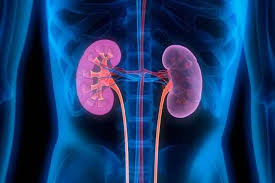IIT Researchers develop biosensor to detect kidney disorders
Researchers from Indian Institutes of Technology (IIT), Bombay and Indore, have jointly developed a biosensor that makes it possible to detect kidney disorders in less than eight minutes.
The biosensor can accurately measure both the pH and urea concentration with a single drop of urine. It will help make a point-of-care test to determine whether the kidneys are functioning normally.
Drawbacks of conventional tests
For conventional kidney function test, doctors estimate pH and urea contents in urine as most kidney disorders result in reduced pH and higher concentration of urea. In current available methods to detect urea, patients need to undergo two tests for accuracy. In addition, these methods have accuracy problem due to contaminations components in urine such as calcium, chloride, ascorbic acid, sodium and potassium.
Biosensor Tests
The newly developed biosensor can detect both pH and urea contents in urine. It is made by encapsulating an enzyme urease and molecule FITC-dextran in alginate microspheres. The combination glows in fluorescence colour in response to chemical reaction with urea and changes in pH when urine is added. The fluorescence reduces when the pH is acidic and increases when it is alkaline. The change in intensity of fluorescence helps to calculate the values of pH and urea.
Significance
The biosensor made using alginate is safe and non-toxic to handle. It can work in the ideal pH range of 4-8. It is able detect even low concentrations of urea up to 50 millimolar. It has showed accuracy of more than 97%. Moreover, it is stable for up to a month in a refrigerator and gives results unaffected by other components in urine samples. It can help to make rapid and accurate point-of-care diagnostic test for kidney disorders.
Month: Current Affairs - August, 2017


